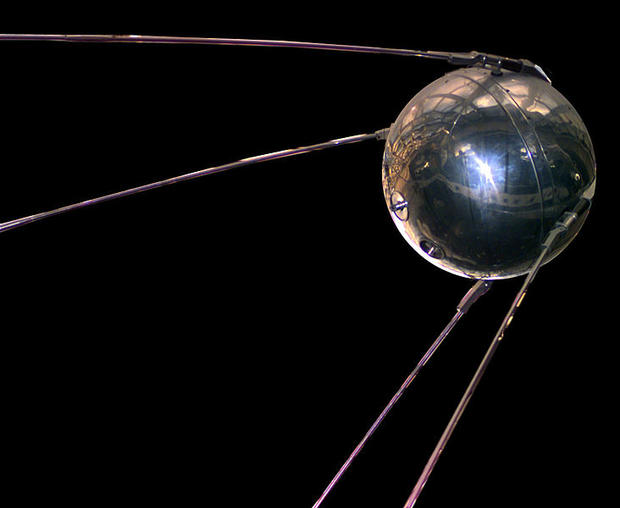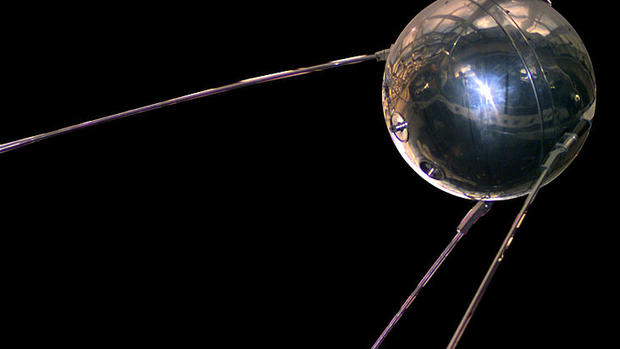Gallery: Sputnik and the Space Race
On this date in 1957, history changed when the Soviet Union launched Sputnik, the world's first artificial satellite.
At nearly 23 inches and weighing about 184 pounds, the basketball-sized Sputnik circumnavigated the Earth every 98 minutes, emitting a beeping signal for the following 23 days. (Not long later, on Nov. 3, the Russians sent up a second Sputnik, which carried both a heavier payload than its predecessor, as well as a dog named Laika.)
The Sputnik launches triggered something akin to a panic in the West, which drew a direct line between the U.S.S.R's surprise technological prowess in space and the nuclear balance of power.
"They
First U.S. Report of Sputnik Launch
In an editorial, the Manchester Guardian declared that the Russians were now capable of building ballistic missiles which could reach any target in the world.
"The achievement is immense. It demands a psychological adjustment on our part towards Soviet society, Soviet military capabilities and--perhaps most of all--to the relationship of the world with what is beyond."
For the United States, which had planned to launch its own satellite to orbit the Earth sometime before the summer of 1958, the immediate response came in the launch of then ordering the establishment of the Explorer-I. More significantly, it led to the establishment of the National Aeronautics and Space Administration and a space race with the Russians to be the first to reach the Moon.
In a 2007 interview with CBS's Harry Smith commemorating the 50th anniversary of the launch, Smithsonian Air and Space Museum curator Von Hardesty recalled how the announcement left Americans in awe - and uneasy.
"Now as far as the satellite itself is concerned, that doesn't raise my apprehensions one iota, except as I pointed out it does definitely prove the possession by the Russian scientists of a very powerful threat," Eisenhower told the American people.
"There was such great uncertainty about the military implications of the launch," Hardesty said. "The '50s was filled with a lot of Cold War mentality and fears. Fear of the bomb."
Even the Russians were surprised at the subsequent impact the Sputnik had.
"We regarded it as Korolyov's little toy," says Boris Chertok, a Sputnik designer. Sergei Korolyov was the project's chief designer. "We... did not expect the impact the launch of this small ball, simple from outside and inside, made for mankind."

